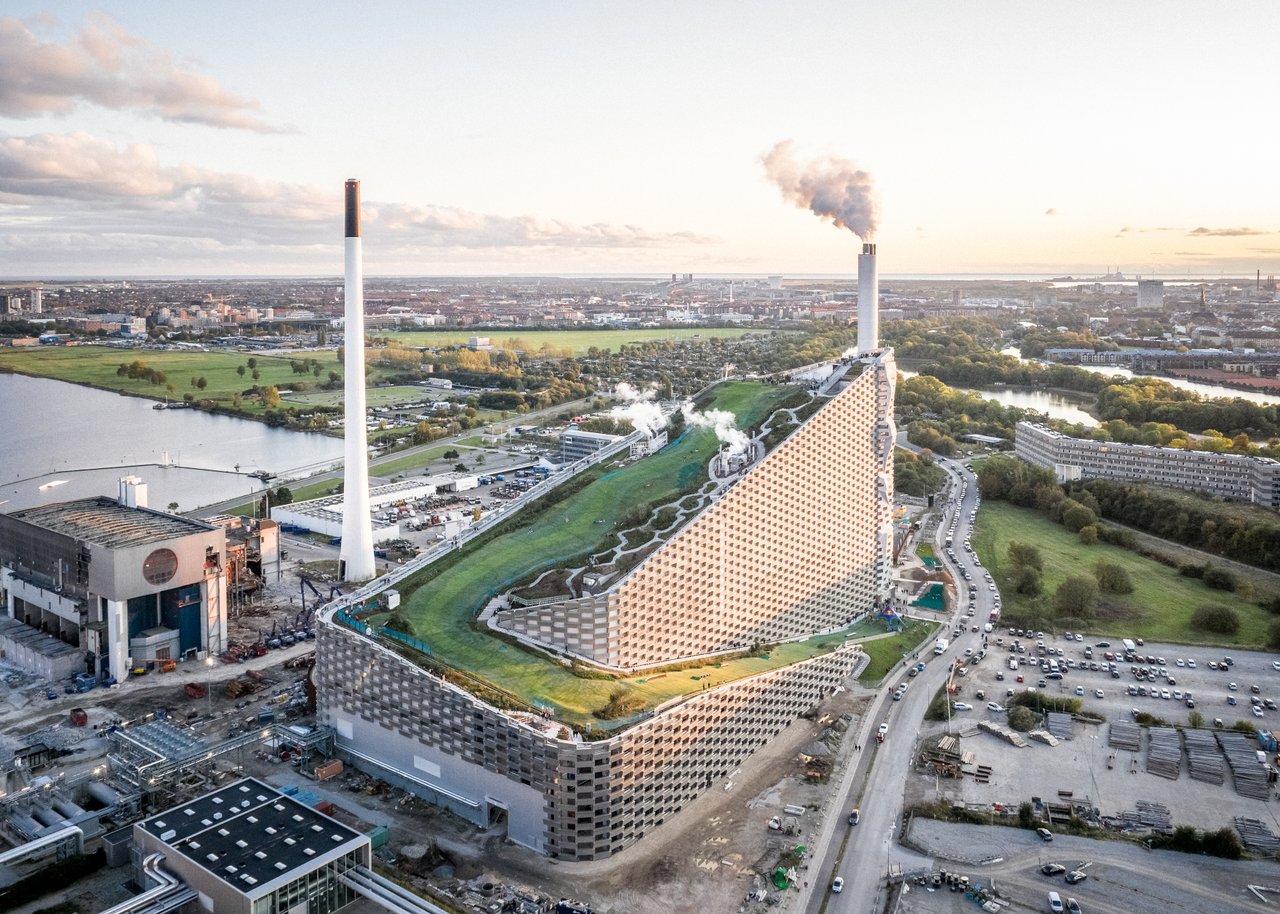
R Hjortshoj ARC 10 medium
The World Capital of Architecture is a prestigious title awarded by the International Union of Architects (UIA) to recognise cities that demonstrate outstanding architectural achievements and promote architectural awareness. In 2023, the city of Copenhagen proudly holds this esteemed title, showcasing its rich architectural heritage, innovative designs, and commitment to sustainable urban development. This article explores Copenhagen’s journey to becoming the World Capital of Architecture, highlighting notable new and existing buildings, the architects involved, and the transformation of the city’s landscape.
Copenhagen’s Rise as the World Capital of Architecture:
Since its inception in 2018, the World Capital of Architecture initiative has aimed to foster international dialogue, collaboration, and awareness of architecture’s vital role in shaping societies. Past host cities, including Rio de Janeiro, Copenhagen, and Paris, have leveraged this opportunity to showcase their architectural heritage, advancements, and visions for sustainable urban development.
There are a number of notable new buildings:
The Blox: Designed by Rem Koolhaas and his firm OMA, the Blox is a remarkable mixed-use complex comprising offices, housing, and exhibition spaces. It serves as the headquarters for the Danish Architecture Center and stands as a symbol of Copenhagen’s commitment to architectural innovation.
BLOXHUB: Adjacent to the Blox, BLOXHUB, designed by the architectural firm C.F. Møller, is a collaborative workspace for architects, urban planners, and other professionals. It promotes knowledge exchange, research, and experimentation in sustainable urban development.
The Royal Danish Playhouse: Lundgaard & Tranberg Architects created this striking waterfront theater, blending contemporary design with historical references. Its location on the harbor revitalises the area, once used for industrial purposes, and breathes new life into Copenhagen’s cultural scene.
The Blue Planet: Danish architectural firm 3XN designed this award-winning aquarium resembling a swirling vortex. It provides an immersive experience for visitors and highlights the beauty and importance of marine ecosystems.

CopenHill: Designed by Bjarke Ingels Group (BIG), CopenHill is an innovative waste-to-energy plant with a rooftop ski slope. This imaginative project combines sustainability, recreation, and urban integration, transforming an industrial site into a vibrant urban destination.
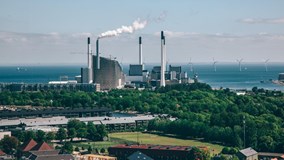
The Royal Arena: 3XN Architects designed this multipurpose arena, characterised by its dynamic, wave-like form. It accommodates various events, including concerts, sports competitions, and exhibitions, enriching Copenhagen’s cultural and entertainment offerings.
The Danish National Maritime Museum: Located within a former dry dock, this museum, designed by BIG, creatively integrates historical elements with modern architecture. It offers visitors an engaging exploration of Denmark’s maritime history.
The Circle Bridge: Designed by Olafur Eliasson, this circular bridge spanning Copenhagen’s Christianshavn Canal enhances the urban fabric while encouraging pedestrian movement. It is a testament to the city’s commitment to blending art and architecture.
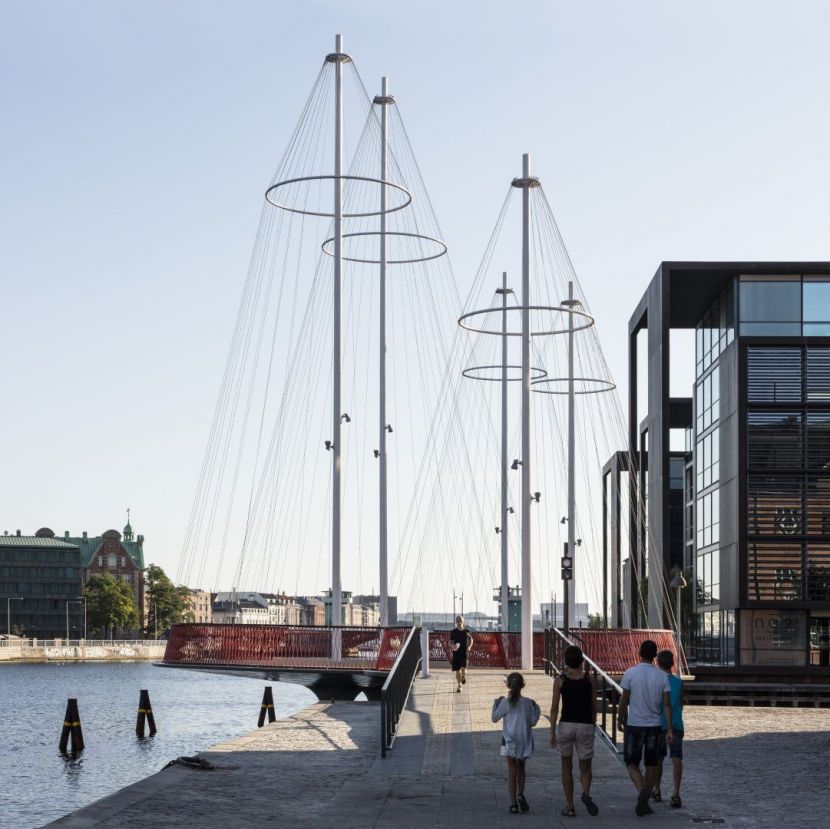
The Royal Library: Known as the “Black Diamond,” the extension of the Royal Library, designed by Schmidt Hammer Lassen Architects, is a contemporary addition to the historical library complex. It houses cultural institutions and offers breathtaking views of Copenhagen’s waterfront.
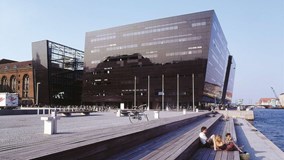
The Royal Arena: Designed by 3XN Architects, the Royal Arena is a multi-purpose venue with a distinct and dynamic design. It hosts a range of events, including concerts, sports competitions, and conferences, contributing to Copenhagen’s cultural landscape.
Of course, it didn’t all start recently there are a number of existing Important and Interesting buildings in Copenhagen:
The Copenhagen Opera House: Designed by Henning Larsen Architects, this architectural masterpiece embodies elegance and modernity. It has become an iconic symbol of Copenhagen’s commitment to culture and the arts.
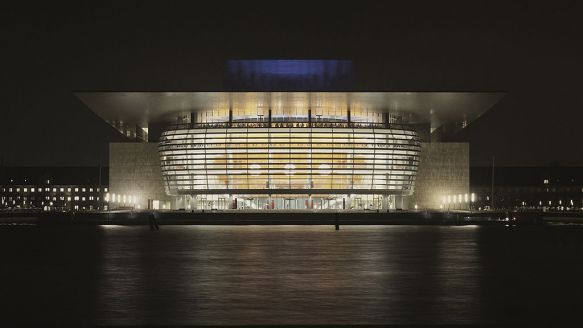
Grundtvig’s Church: Constructed in the expressionist style, this church, designed by P.V. Jensen-Klint, stands as a tribute to Danish philosopher N.F.S. Grundtvig. It is a prominent landmark, known for its intricate brickwork and unique interior.
The Royal Danish Academy of Fine Arts: Representing the Neoclassical architectural style, this esteemed institution, designed by C.F. Hansen, has been nurturing artistic talent since 1754. It has influenced generations of Danish architects.
The Royal Copenhagen Porcelain Factory: Originally a porcelain factory, this building was transformed into the Danish Museum of Art and Design, showcasing the country’s rich design history. It was designed by Vilhelm Klein and Ferdinand Meldahl.
These examples merely scratch the surface of Copenhagen’s architectural treasures, but they exemplify the city’s commitment to design excellence and urban transformation. Architects like Bjarke Ingels, Rem Koolhaas, 3XN, and Schmidt Hammer Lassen have left an indelible mark on the city’s skyline and architectural identity.
Copenhagen’s recognition as the World Capital of Architecture 2023 celebrates the city’s exceptional architectural achievements, sustainable development initiatives, and dedication to preserving its historical heritage. Through the visionary work of renowned architects and urban planners, Copenhagen has transformed its landscape, repurposed industrial sites, and seamlessly integrated innovative designs with its rich history. As the world looks to Copenhagen, it serves as an inspiration for future host cities and a testament to the power of architecture to shape vibrant, sustainable, and culturally rich urban environments.
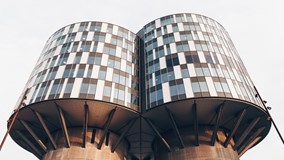
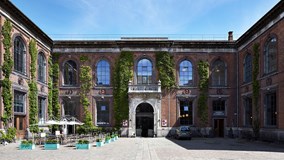
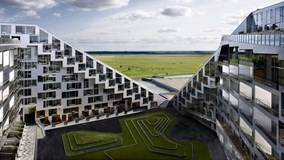
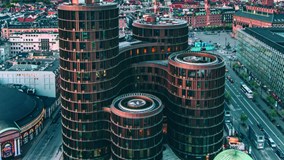
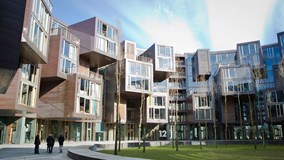
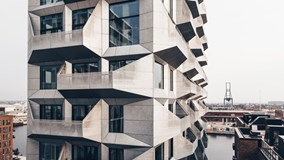
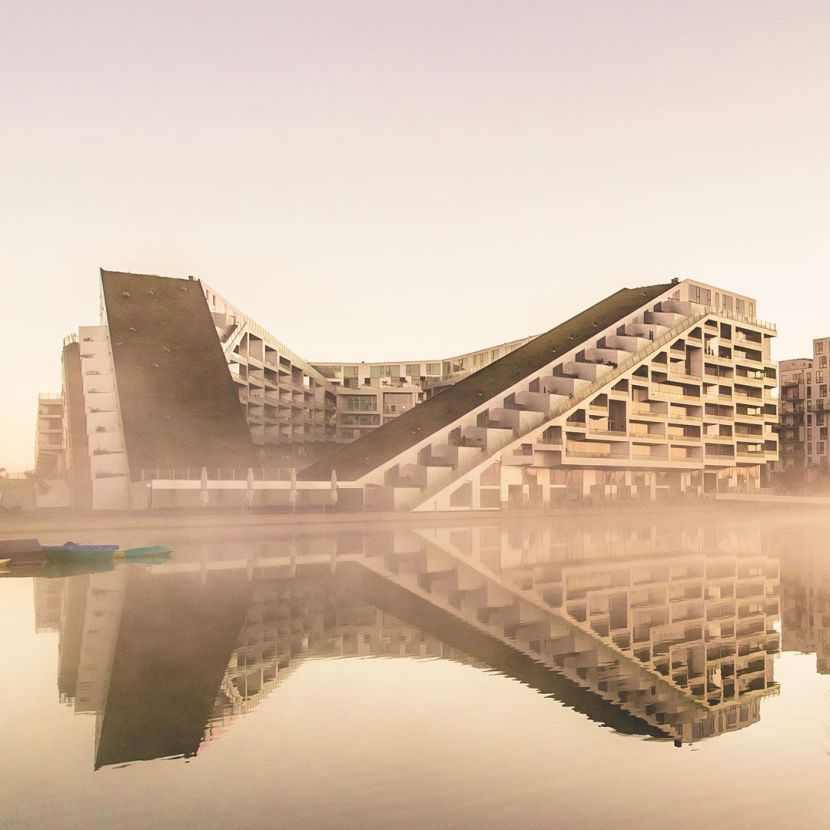
All rights to Baltic Travel Company – and images by Visit Copenhagen